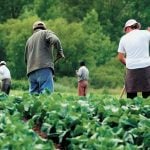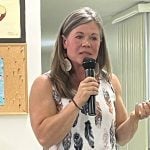It was a case of dueling farmers on Parliament Hill as American producers on both sides of the dairy hormone issue traveled to Ottawa to speak to senators.
It was the last Senate agriculture committee meeting before its report on the issue is given next month.
American farmers were brought in Dec. 7 to talk about the U.S. experience five years after bovine somatotropin was approved for sale there.
For Linnea Kooistra, who operates a 280-cow dairy and cash crop farm northwest of Chicago, Ill., BST is effective and safe.
Read Also

Alberta may eliminate marked fuel
Alberta may soon stop selling dyed gasoline and diesel.
“We know that it works for us,” she said. “We get about an 11 to 12 pound response from our cows on average. We are using BST in about 75 percent of our cows right now. Basically, we are sold on BST as a tool for the dairy farmers in our country.”
Kooistra and veterinary defenders of the drug said they did not receive money from Monsanto, although the company picked up their expenses to Ottawa.
On the other side was Jenny Nelson, a dairy and cash crop farmer from Ryegate Corner, Vermont.
She said that with husband Bill, she considered use of BST but the health risks to humans and cows, as well as uncertainty over consumer reaction, led them to reject it.
“This simple and quick management tool has spawned controversy and raised serious concerns about human health problems.”
“You in Canada would be wise to stay away from this deplorable product whose social and economic consequences are destructive,” she said.
The two farmers were members of delegations that offered opposing views of the use of BST.
The Monsanto-led delegation in favor of BST included St. Mary’s, Ont., veterinarian Robert Bell, who insisted that use of BST in Canada would not mean an end to supply management. He said it would mean farmers would make more money from the cows they have and therefore be able to buy more quota to accommodate higher production.
He was one of the more feisty defenders of the drug, suggesting to anti-BST senator Mira Spivak that she did not know when “enough is enough” on testing.
“Let us not argue about this question of need because the bottom line is that it delivers to the bottom line of dairy farmers,” he said.
According to a model Bell developed of a Canadian benchmark dairy farm, there would be “a 25 percent increase in net farm income before taxes and depreciation by using BST.”














